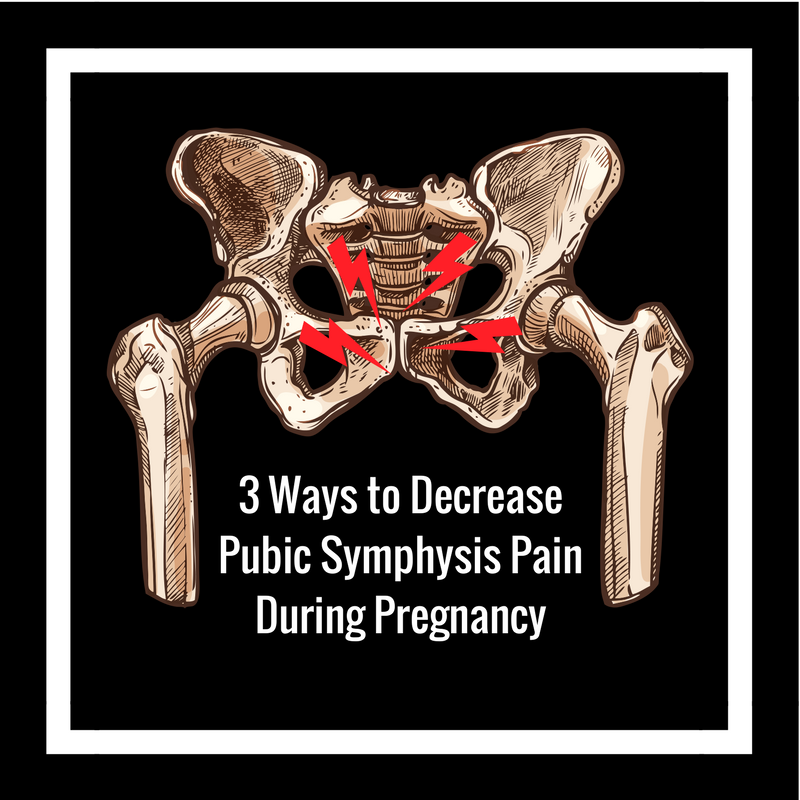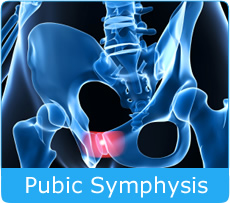3 Ways to Decrease Pubic Symphysis Pain During Pregnancy
Signs & Symptoms of Pubic Symphysis Dysfunction
- Difficulty when walking
- Unable to stand on one leg without pain, or pain with activity where you lift one leg, such as walking climbing upstairs, getting dressed, getting in and out of a car
- Wrenching/lightning pain in the pubic area that may radiate to the upper thighs and perineum
- Pain when turning over in bed
- Sharp pains with any weight bearing activity
Causes of Pubic Symphysis Dysfunction (PSD)
Separation of the pubic symphysis can occur during pregnancy
During pregnancy the hormone relaxin loosens the ligaments of the pubic symphysis and softening the cervix to prepare the body for delivery. The symphysis can separate up to 10mm during pregnancy and labor!
The weight of the growing baby can also put pressure on the pubic symphysis and pelvis, causing a shift in alignment and pain in the pelvic area.
3 Ways to Eliminate Pubic Symphysis Pain Naturally
Dr. Erica, at 32 weeks, used a simple belly taping to help relieve pressure off the pubic symphysis.
1. Kinesiotaping/Rock Tape
This tape facilitates the body’s natural healing process and range of motion by providing support and stability to muscles and joints, improving blood flow, reducing pain and swelling and controlling inflammation. There are numerous ways to apply the tape to help take pressure off the pubic symphysis.
The tape stays on for 3-5 days and can be tailored to your changing body.
In the office we will evaluate your posture and location of pain to personalize your care.
2. Belly Band
A belly band acts as a girdle and support system for the entire pelvic area. The band can be pulled tight to decrease movement of the pubic symphysis. This also supports the lower back during the third trimester.
I, Dr. Erica Heppe, ran a 10K in 59min at 7 months pregnant. Afterwards I suffered from a lot of pubic pain and used the the Gabrialla Elastic Maternity Support Belt to reduce discomfort throughout the day.
3. Chiropractic Muscle Contraction Adjustment
The chiropractic adjustment for the pubic symphysis is quick and simple, watch the video to see what to expect during your treatment. This adjustment uses the adductor muscles, which attach to the pubic symphysis, to help realign the pelvis.
I can attest that this adjustment works! During both pregnancies I suffered from pubic symphysis dysfunction. I could easily tell when my symphysis 'slipped' out of place, I felt excruciating pain when I stood on one leg. My husband, Dr. Scott Heppe, would perform the adjustment and I would immediately be able to stand on one leg without pain!
Have you suffered from this condition? Let us help you get back to moving around pain free!







